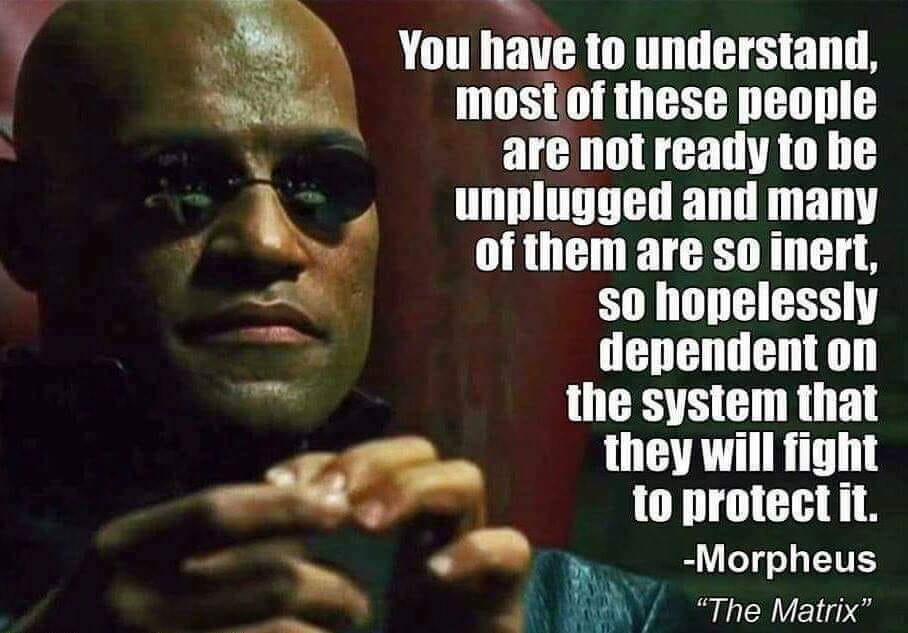Recently, I have read quite a few things about the involvement of Christians in politics, and indeed the involvement of politics in Christianity. The current British Prime Minister, Mrs. Theresa May, has recently expressed how her Christian faith guides her politics; climate change protesters demonstrating on the streets of London have claimed Jesus’s allegiance in their cause; and as for the current President of the United States, Donald Trump, it is of course well known that the Evangelical Christian conservative right are completely behind him, and that, they claim, in a ‘Biblical’ sense too. There’s no point in me linking to references on these matters; these things are well-known and can be Googled if required.
Politics is a necessary fact of life, and indeed people have fought and died to make my country a democracy, and I will always be grateful for that. I really cherish my right, and my privilege, to have an influence – however small that might be – on the decision-making processes in my country. I value my ability to write to my Member of Parliament (MP) and express my views, in the hope that they will incorporate my ideas or whatever into their discussions and possibly in some small way influence the way things turn out. I do think it is extremely important to honour that privilege and to appreciate it. I don’t like how some groups, like, for example, the Jehovah’s Witnesses (JWs), declare themselves to be not a part of the world system and therefore do not take part in the democratic process. While I understand their position – as you will see below, and then some! – I do believe that we are a part of this world and we still need to live in it until our time is up. Therefore, it would be extremely silly to not take part in the influencing of Government policy, not least because if we good people don’t do it, then there are plenty of nasty people out there who are ready and willing to usurp the democratic process for their own ends. And that wouldn’t be pretty. Jesus came to bring abundant life, and our modern civilisation is an expression of that in that the standard of living nowadays is higher than it has ever been at any point in history, and what we call the ‘poverty line’ is much higher than it used to be. Granted, there will always be poor people (Mt 26:11) but still today’s standard of living is much better and it continues to improve.
All that having been said, Christians are still actually not ‘of the world’ (Jn 17:14). Whereas , as we have seen, some groups like the JWs would say that they remain neutral (and do not take part) in political systems at all, because they see their citizenship as being first and foremost in God’s Kingdom, I do believe that Christians* can indeed take part in ‘worldly’ politics in order to improve society. However, they can do this with their status as citizens of the Kingdom of Heaven firmly in mind.
And that can mean a number of things. The first thing that springs to most people’s minds on this subject is that of course their Christian faith, morals and principles, which will of course differ from one Christian to another, will be used to inform and direct the political choices made by each individual. This is, I think, axiomatic, and forms the basis of all choices made at the ballot box.
But there is another angle beyond this one. As I have briefly described in a former article, I do feel that the citizens of the Kingdom of Heaven also have a position that is above and beyond the considerations of mere worldly politics.
While the voting system is a granular, often binary choice – that is, you get to vote for one person or group out of a choice of two or more, and usually no more than about six or seven people or groups – everyone knows that the world’s problems are not normally simple binary, black-and-white issues. There are many shades of grey involved in most issues, if we are honest, and the asking of questions which allow only a simple binary (yes/no) answer is not really an honest way of looking at the issue. Especially when that question is intentionally polarising or designed to place the responder on one side of the fence or another. I find this to be disingenuous because the questioner is setting up his victim to be polemicised by the questioner and other readers. For instance, this one came up on one thread recently, seemingly one of these ‘innocent’ questions that is actually nothing of the sort because it’s designed to categorise the victim for either subsequent public grilling or subsequent full approval, depending on the answer (if that answer is presented as binary, as the question sets it up to be). Here it is:
“Can I ask, are you in favour of reducing our emissions to carbon neutral by 2025?”
You could answer ‘Yes’, and on the face of it that appears to be the easy option, but firstly, that implies that group approval of any further replies on the subject is dependent on your getting the first answer ‘right’ with that ‘yes’, and secondly, in order to gain said approval, if the victim actually believes ‘no’ (for whatever reason), then they would have to lie with a ‘Yes’ in order to be ‘allowed’ to participate further in the discussion, which would of course be further questions along the original line. In other words, leading questions. As always, these questioners take advantage of the general propensity of Christians to tell the truth, and sometimes, because of this, these a-holes deserve to be lied to, in my opinion.
Answering with a ‘no’ of course, is firstly against the general opinion that a) carbon emissions cause global warming, and b) global warming is bad. But in this case it was also against the general group agreement on those two points above. It’s like the question that sales people pose, “What, you mean you don’t want to save money?”, to which the obvious answer is also a leading answer because then the salesman has his foot in the door as it were. The correct answer to sales people like that is to crush the so-and-so’s foot in the door, because it shouldn’t be there anyway. Especially as my door has a ‘No Cold Callers’ sign on it 😉
To return to my original point, though, real life issues do not usually have a simple binary answer, or at least those answers would not be of much value. The case in the above example, about global warming, is that yes it’s a good idea to reduce global warming, but the issues are not quite simple enough to be expressed with simple binary answers. Now, while some people might relish the simplicity of binary answers, most of the time it’s far, far more straightforward, instead of being tied up in all this nonsense, to be free of all that and simply take Jesus’s example and to do what you see Father doing (Jn 5:19).
Some might think of this as a cop-out.
Well, firstly, I really don’t care if people think this; my thinking and decision-making processes are my own and I’ll run them how I like.
But, secondly, it’s not a cop-out because if Father asks me to perform a particular action in response to a particular need, then it’s action all the way. That’s how it works for me, anyway. I think that’s part of what Jesus meant when He said that apart from [Him] you can do nothing. If Father isn’t the main cause of my actions, then those actions are not worth doing because it’s not what He is calling. And that’s hardly a cop-out; instead it is divinely-inspired action which consumes you until the job is done. This is what it means to have Jesus as my King.
People accusing others of copping-out are simply annoyed because they haven’t been able to force their victims into the course of action that they wanted them to take. Well, tough on them, I say. My freedom of action is my own, too, and it’s part of my freedom as a citizen of the Kingdom of Heaven to be free to take whatever action Father wants me to do, or to not do anything at all, and that all irrespective of others’ opinions and/or expectations. This is what it means to rest in Him; to be free to do or not to do as requested by Father. Falling in line with others’ expectations is not freedom; it is slavery to their opinions and their approval (Gal 1:10, Jn 12:43). So, exercise your right to be above the question, the situation, and the answers. But don’t tell them; just stay silent on the matter. There is no requirement for you to explain yourself to anyone else.
My thoughts on this, and indeed a decent summary of our position as believers with respect to being ‘above’ worldly politics, can be illustrated and indeed expanded with a real-life example. In this example, I explain the core of what I believe with regard to the privilege of the believer to be ‘above’ the mere black-and-white, binary thinking involved in many worldly affairs:
Last year, there was some kerfuffle over in the USA about some bloke being accused of yet another sexual assault on a woman. I have no opinion on the matter; I consider US news reporting – especially TV news reporting – to be some of the worst journalism in, well, the ‘free world’, at least. Because of that, I feel that I have insufficient data of any assured accuracy to form an opinion, which to be fair I wouldn’t express anyway because it’s nobody else’s business. I think that most other people had that same lack of reliable information too, but that didn’t stop me and a friend being blasted by people who thought our opinions should be identical to their own. My friend, an American man whom I have never met face-to-face, is a man who is far on in the faith and has an incredible spiritual maturity. He was accused of ‘taking sides’ on that matter, mainly because he can see both sides, just like Jesus can. His response, which I have mentioned in my blog before, went like this:
“I’m afraid my “middle of the road” stance is gonna get blasted by BOTH sides. You have to either believe everything that a potential victim says and demonize the alleged offender, making him unfit to serve our country in any capacity, or try and minimize what could be a serious crime and call their accusations “fake news”. And I’m not good with EITHER of those positions. I want to know the truth, but I don’t know if the truth can be ascertained in these circumstances. I want justice for [the person in question], but don’t know if justice means destroying a man’s career and possibly life over what COULD have been a stupid macho mistake or terrible misunderstanding. Can I trust a man to handle the law that has potentially hurt someone? Yes, under the right circumstances. But I’m not even clear on what those would be, but I want it to revolve around the truth, admission of any guilt, apologies, forgiveness and restitution. I really just want compassion and justice for all”
I wrote this to him:
“[My friend], I don’t see you as being ‘middle of the road’ at all. I see you as being above the road; being able to see what is going on – but not only not taking sides, but just being Jesus. Remember the theophany in Joshua 5? [Josh 5:13b-14 (KJV)] ‘Are you on our side, or the enemy?’ “No” was the answer. Not ‘Neither’, although that’s not far off, but ‘No’. ‘Neither’ involves the choice of taking neither side. ‘No’ indicates that the question is not germane. There is a detachment from sinking to the level of the human conflict and its ‘choosing sides’, or even choosing the middle road, and seeing it from God’s point of view instead. Any and every Christian has the right to sit in that position of ‘No’; it’s far above a simple refusal to take sides, it’s part of being who you are in Christ. There is neither requirement nor compulsion to declare or assume sides; you are not answerable to anyone because you are a spiritual man. And you don’t have to explain yourself to anyone either.”
His reply:
“Wow, thanks Anthony. I don’t know that that’s EXACTLY what I’m doing, but it sure is something I would aspire to. I am trying to see everyone’s point of view, to put myself in their shoes and think about what they would need and want. And, yeah, that’s why I can’t just pick a side. Argue for one side, and I’ll just end up telling you why the other side can’t be ignored or belittled. When it comes to perpetrators (or even alleged perpetrators) that becomes VERY difficult in this country [USA – Ed], even among the Christian population. Everyone seems to call out for their pound of flesh. I’m trying to see from the point of view of that flesh”
I finished off the exchange with this:
“And that was exactly what was in my mind when I wrote the comment. But as a man of peace, you naturally, well, maybe not always see both ‘sides’, but you at least are aware that both ‘sides’ exist and having that ability to put yourself in both sides’ shoes and try to see things from their point of view is about as Christlike as it gets. Unfortunately, those who cannot understand this see it as picking sides, merely because you express the fact that both sides have a point of view – but without making a value judgement on those points of view. So, you haven’t picked sides, but because you express attempted understanding of both sides, this makes you apparently complicit with both. But you and I both know that this is not the case at all, and this is why the spiritual man cannot be judged by anyone – because we see things from the spiritual point of view, not the worldly. Not that we are superior or anything, but we simply have a perspective that not everyone has”
This is the kind of wisdom that we learn from being close to Jesus and listening closely to His heart. It’s also the kind of freedom that we get when we are liberated from the slavery of others’ opinions and approval. In fact I would say that we cannot be free to do God’s will if we are still bound up with concerns about human approval. If we have to hesitate for any amount of time as we consider whether someone else will like what we are doing/not doing, then I would say that we are not free to make our own decisions about following Jesus’s voice. And the other thing is that this is a position that is arrived at through spiritual growth. Don’t expect others to understand it, because they may not have grown to that point yet themselves.**
And we must always be free to do what we see Father doing. This is my sole mantra in life: to do what I see Father doing. Anything else is superfluous.
So, if you feel that Father is doing in your life right now a work that involves some sort of political action, then that’s what you should go for, and go for it with all your heart. But don’t expect others to just leap in and join you – that’s their choice, and in the end, if they don’t see Father doing that in their lives, then it’s not something they should be doing either. And it’s not your job to persuade them otherwise, nor indeed to judge them. For as spiritual people, they are above your judgement – not in any ‘superior’ sense or in any way ‘better’ than you, but simply because your judgement – and that from anyone else for that matter – is irrelevant (1Cor2:15). Who are you to judge someone else’s servant? To his own master a man stands or falls, and he will stand. (Rom 14:4). And that passage in 1Cor2:15 especially applies when it is an unbeliever who is doing the judging, because they have no experience of the things of the Spirit and so also have no right to judge. They cannot understand the dimension of being in Christ, not yet at least.
And if you feel that what Father is doing with you at the moment is something else – whatever else! – then grab that with both hands and do that.
I appreciate this is a long essay, but let’s also take a look at what Jesus did in terms of compliance with people’s political demands. Basically He told them to go take a hike. Sometimes He explained Himself; sometimes He didn’t.
I mean, people around Jesus attempted several times to get Him to take a political stance. They wanted to make Him king by force (Jn 6:15); they tried to catch Him out by getting Him to stand either for or against Rome or the people when they asked Him about paying taxes (Mt 22:15-22; Mk 12:13-17; Lk 20:19-26). Even his own mind, or the Devil, take it how you will, tried to get Him to take the political kingship directly by supernatural means, rather than walking the road to the Cross, during His ‘temptation’ in the desert (Mt 4:1-11, Lk 4:1-13).
But Jesus said that His Kingdom is not of this world (Jn 18:36). Sure, Jesus carried out His ministry during a time of huge political, religious and Imperial turmoil, and the principles He taught and demonstrated were largely about how to treat one’s fellow man. And I have read many things by various authors which strongly suggest that Jesus was a revolutionary, a radical, and all kinds of things like Him being a sort of first-century Che Guevara. But I’m afraid I don’t agree that Jesus’s mission was political in nature. Instead, His mission was primarily about demonstrating the love of God to people, and how much God values people. Inseparably from that, and indeed as a natural progression from that, He also demonstrated that love for God could, and should, also go hand-in-hand with loving others. And yes, that will lead to political change, as we shall see below, but that wasn’t the main thrust of His ministry at all.
But He steadfastly refused to take up any political position or power, or indeed to get directly involved in political matters at all, because from a very early point in His life, He was about His Father’s business (Lk 2:49). And since He did not feel that His Father was telling Him to get involved in politics, He didn’t. In fact, He was actually so non-political that although He was accused (amongst other things) of sedition – a political offence – before Pilate, Pilate did not believe Him guilty in that matter (Lk 23:4; Jn 19:4). And you can be sure that if Pilate had thought Jesus any kind of threat in this regard, he would have found Him guilty without batting an eyelid. Politically, at least for the Romans, Jesus was no threat at all, at least that they could discern. Sure, He also sowed seeds in His followers which, it could be argued, led to the eventual downfall of the Roman Empire, but this was not for another 300 years or so, and if anything it was caused indirectly and not as a direct effect of His teachings in first-century Palestine. The Kingdom of God as inaugurated by Jesus did produce political change, but only really as a result of the changes in individuals’ lives as they came to appreciate the wider ramifications of the Kingdom of God.
No, Jesus’s method for navigating the minefields of other people’s politics, approval/disapproval, attempted influence and social and political pressure, was to seek only the approval of God. More specifically, in fact, He took this a stage further in that in addition to seeking the approval of God, He also sought the will of God. He specifically chose to do only what He saw the Father doing (Jn 5:19). In this way, He kept His focus on what He was supposed to be doing instead of being side-tracked into other things which, although they might well have been important, were not what God had got planned for Him at that time.
So, then, as citizens of the Kingdom of Heaven, we are free. We partake of the ‘glorious freedom of the children of God’ (Rom 8:21). Like the Angel of the Lord in Joshua 5:13-14 (KJV), we too are free to say ‘No’ (or its equivalent) in response to polarising questions. We are also free to not answer at all; something Jesus did frequently.
I want to reiterate clearly, also, that I am not saying that believers are in any way superior to other people. We are not above these things as if we are somehow exempt from, or immune to, worldly political things; far from it. But we are able to take the Heavenly viewpoint on any issue which, almost by definition, an unbeliever cannot do. And in fact many, if not most, believers also have not yet learned to use the Heavenly viewpoint when it comes to worldly issues; not just in politics, but in other fields as well. But it is your privilege to do so, and your right. You are a priest of the Most High God. You are called to imitate your Father in Heaven; to do the things you see Him doing.
Why burden yourself with anything less than that?
*Jehovah’s Witnesses do indeed call themselves Christians. It is not my place to judge whether or not they are ‘proper’ Christians – whatever a ‘proper’ Christian is! – but I make the distinction here between Jehovah’s Witnesses and other Christian denominations solely in order to differentiate for the purposes of my discussion.
**I do not confine this to Christian believers, either. Most people can grow to this level of spiritual wisdom and maturity if they let themselves; it does not need to be ‘faith-related’. Most people are far more ‘spiritual’ than either they, or others, give them credit for. This is as distinct from the Heavenly point of view, which is similar to the ‘spiritual’ point of view, but is of course influenced by the precepts of the Kingdom of Heaven as well. I hope that makes sense.










